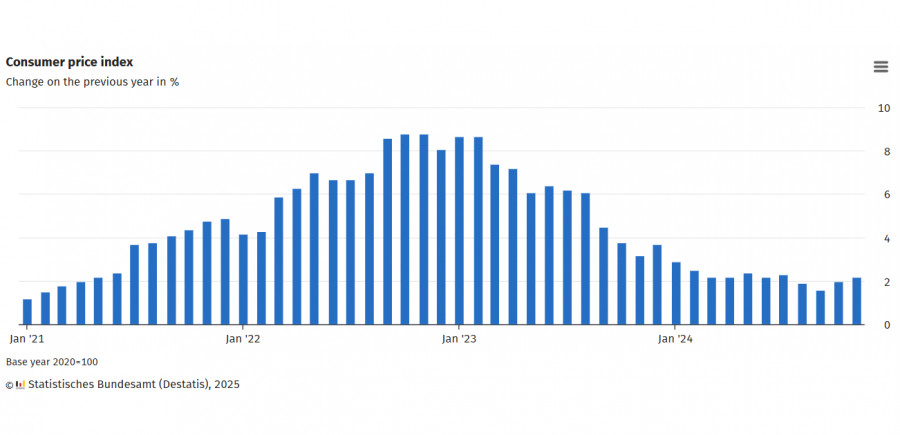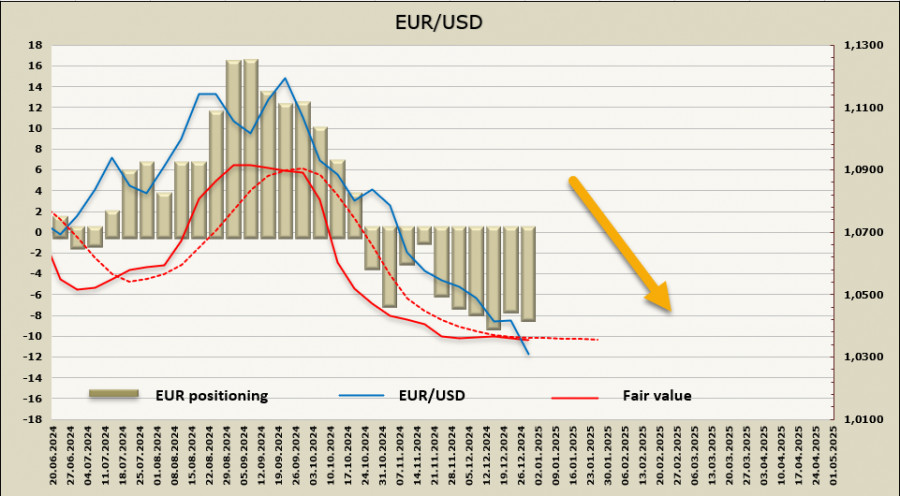Ahead of the eurozone consumer inflation report, concerns about renewed price growth have increased as major eurozone countries have reported inflation rates that exceed forecasts. In Germany, prices rose at a faster-than-expected rate in December, showing a year-over-year increase of 2.6%, up from 2.2% the previous month. In Spain, inflation reached 2.8% during the same period, surpassing the forecast of 2.6%. France is scheduled to release its inflation report on Tuesday, just two hours before the eurozone-wide data is made public. If French inflation also exceeds expectations, we can expect the euro to strengthen.

It's uncertain whether the current situation is a temporary phenomenon or the beginning of a broader inflationary trend. However, the risks facing the European Central Bank are increasing as it faces difficult policy choices. One significant factor is the halt of Russian gas transit, which came about after Ukraine chose not to extend the transit agreement. As a result, the price of gas on the TTF exchange has doubled from its lows last February, reaching $540 per 1,000 cubic meters in early January. This increase in energy costs is likely to push overall inflation higher, which in turn will affect the core inflation rate. This scenario suggests inflation may rise even as economic prospects remain weak.
Additionally, there is a potential threat of increased trade tariffs, primarily aimed at countries like China, Mexico, and Canada, according to former President Trump's priorities. Although this threat is currently hypothetical, it would be unrealistic to assume that Europe could avoid being affected.
Current market forecasts indicate that the ECB is expected to cut rates by a total of 100 basis points this year, significantly more than the anticipated rate cuts by the Federal Reserve. This difference in rate adjustments is likely to lead to higher yields for the dollar, putting long-term downward pressure on the euro. However, if inflation increases and the eurozone economy shows signs of resilience, forecasts for ECB rates could be revised, possibly paving the way for a correction in the euro's value.
We will soon have more clarity on this scenario. The composite Purchasing Managers' Index (PMI) for December surpassed expectations, rising from 49.5 to 49.6. While this figure remains in contraction territory, it does not indicate a significant shift, particularly in light of the renewed pressures from rising energy costs.
Speculative positioning in the euro remains bearish. The latest CFTC report, which was delayed due to the holiday season, may provide additional insights. For now, however, there are no signs of a reversal in EUR/USD. The estimated fair value remains below the long-term average and continues to trend downward.

Last week, the euro hit a more than two-year low at 1.0225. The current correction is likely to be short-lived, with resistance anticipated around 1.0440/50. After testing this level, further selling is expected. A critical factor for the euro in the near term will be the release of the December consumer inflation index on Tuesday. If the German data exceeds expectations and drives up the eurozone-wide index, the corrective rally could extend. Otherwise, the euro is likely to form a local peak and resume its decline, potentially revisiting 1.0225 and aiming to consolidate below that level.
The material has been provided by InstaForex Company - www.instaforex.comRobotFX















 Download NOW!
Download NOW!
No comments:
Post a Comment